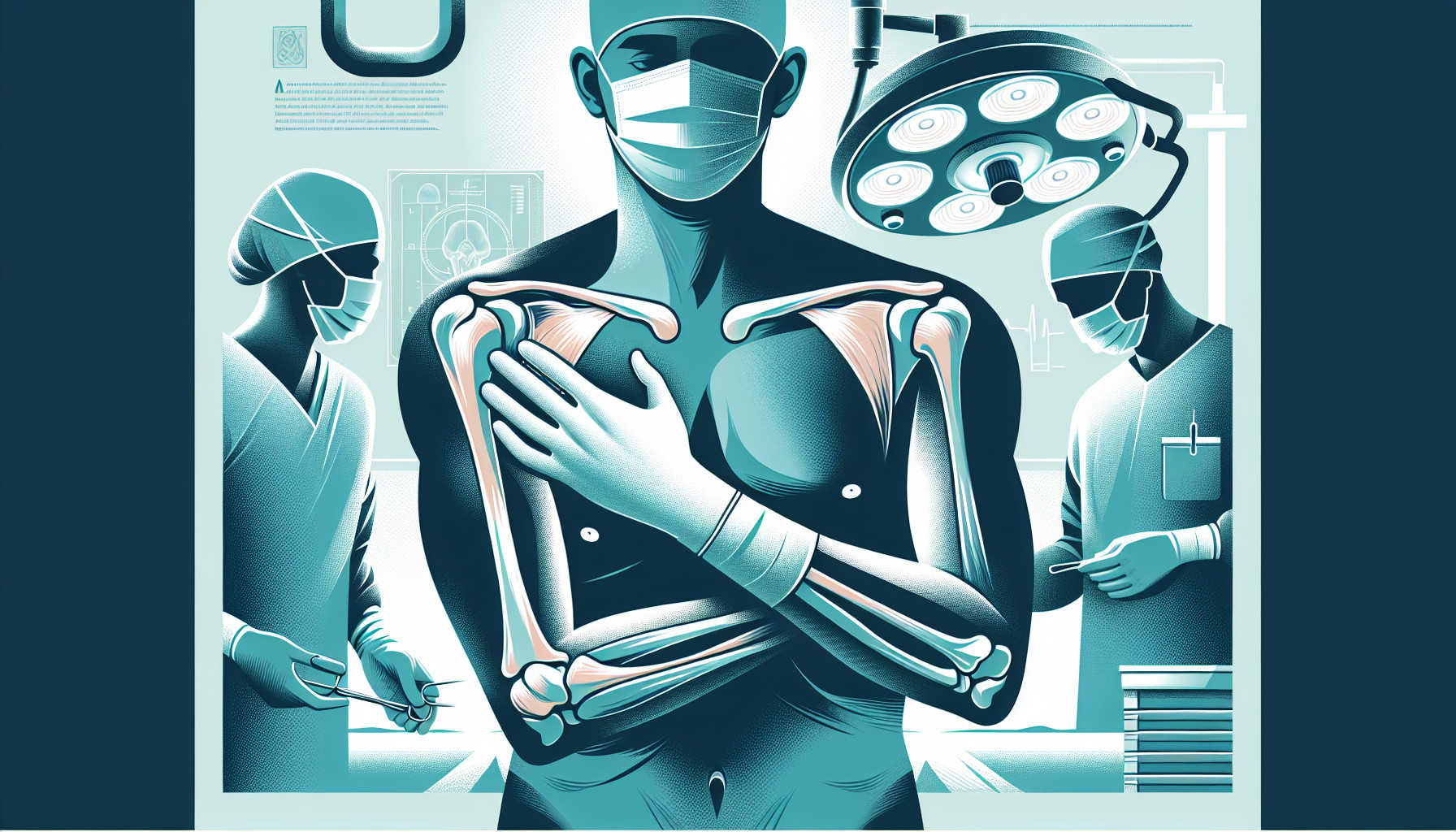Our Summary
This research paper conducts a detailed analysis on the occurrence, changes over time, and potential risk factors of infection in artificial shoulder and elbow joints. The team looked at studies published up until June 2019. They found that, out of over 630,000 shoulder replacements, around 0.61% led to joint infections. Of the over 17,000 elbow replacements, about 2.53% resulted in infections. These infections have been decreasing since the 1990s. Certain factors increase the risk of infection, including being male, under 75 years old, having had previous shoulder surgery, having certain conditions like rotator cuff arthropathy, and getting a shoulder replacement as an inpatient. For elbow replacements, being overweight, having a psychiatric illness, and having had previous elbow surgery all increased the risk of infection. The research concludes that while infections after joint replacement are becoming less common, doctors need to be careful with patients who have a higher risk of infection, particularly young males and those who have had previous shoulder surgeries.
FAQs
- What percentage of shoulder and elbow replacements resulted in infections, according to the research?
- What factors increase the risk of infection after shoulder and elbow replacement surgeries?
- Has the rate of infections after joint replacement surgeries increased or decreased over time?
Doctor’s Tip
A helpful tip a doctor might tell a patient about shoulder replacement is to closely follow the post-operative care instructions provided, including proper wound care, physical therapy exercises, and medication management. It is important to attend all follow-up appointments with your healthcare provider to monitor for any signs of infection or complications. Be sure to communicate any concerns or changes in symptoms to your doctor promptly. Additionally, maintaining a healthy lifestyle, including regular exercise and a balanced diet, can help support a successful recovery after shoulder replacement surgery.
Suitable For
Patients who are typically recommended for shoulder replacement surgery include those with severe arthritis, rotator cuff tears, severe fractures, or other conditions that have not responded to conservative treatment options such as physical therapy, medications, or injections. Additionally, patients who have had previous shoulder surgeries or who have certain risk factors for infection should be carefully evaluated by a healthcare provider to determine if shoulder replacement is the best option for them.
Timeline
Before shoulder replacement surgery:
- Patient experiences chronic shoulder pain and limited range of motion.
- Patient undergoes various diagnostic tests such as X-rays, MRI, and physical examinations to determine the need for surgery.
- Patient consults with an orthopedic surgeon to discuss the risks and benefits of shoulder replacement surgery.
- Pre-operative preparations are made including medical evaluations, cessation of certain medications, and physical therapy to strengthen the shoulder muscles.
After shoulder replacement surgery:
- Patient undergoes the surgical procedure to replace the damaged shoulder joint with an artificial implant.
- Patient is closely monitored in the hospital for a few days to manage pain and prevent complications.
- Patient begins physical therapy and rehabilitation to regain strength, flexibility, and function in the shoulder.
- Follow-up appointments are scheduled with the surgeon to monitor progress and ensure proper healing.
- Over time, the patient experiences improvements in shoulder function, reduced pain, and increased mobility.
- Long-term follow-up care is recommended to monitor the shoulder implant for any signs of infection or other complications.
What to Ask Your Doctor
- How common is infection in shoulder replacement surgery?
- What are the risk factors for infection following shoulder replacement surgery?
- How can I minimize my risk of infection before and after surgery?
- What symptoms should I look out for that may indicate an infection in my shoulder replacement?
- How is infection in a shoulder replacement typically treated?
- What is the success rate of treating infections in shoulder replacements?
- Are there any specific precautions or measures I should take to prevent infection in my shoulder replacement in the long term?
- How often should I follow up with you after my shoulder replacement surgery to monitor for any signs of infection?
- Are there any lifestyle changes I should consider to reduce my risk of infection in my shoulder replacement?
- What is the likelihood of infection occurring in my specific case, considering my medical history and risk factors?
Reference
Authors: Kunutsor SK, Barrett MC, Whitehouse MR, Craig RS, Lenguerrand E, Beswick AD, Blom AW. Journal: J Infect. 2020 Apr;80(4):426-436. doi: 10.1016/j.jinf.2020.01.008. Epub 2020 Jan 22. PMID: 31981635
